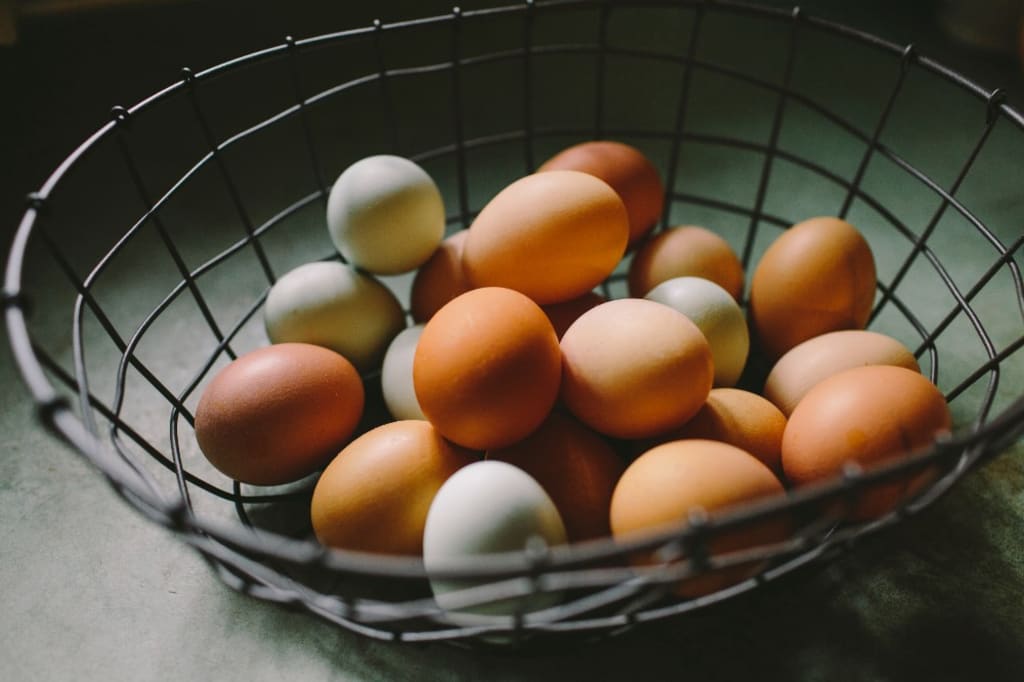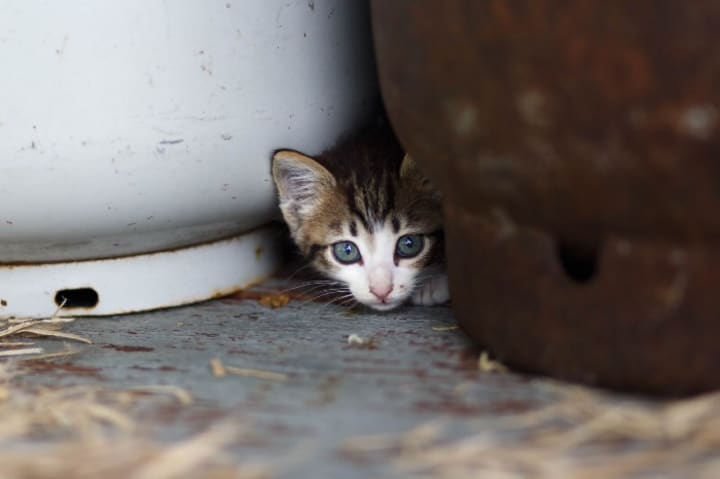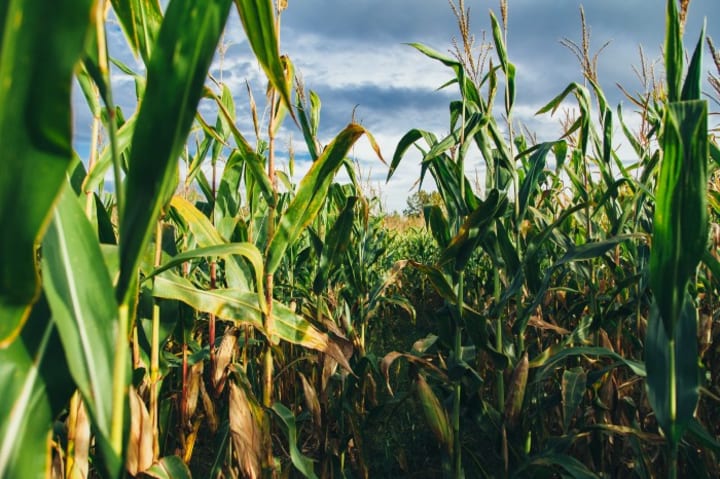Fetching the Eggs
A hot Ohio day and a lesson in compassion

I softly knocked on the exam room door, then entered. An elderly woman perched in her wheelchair, unable to clamber onto the exam table. The diminutive floral print of her cotton dress harkened back to the 1950’s, a time when she had been in her prime. Her bird-like black eyes met mine and she blessed me with a lopsided smile, the same glance and smile she had shared when I was a little girl. I pulled out my stethoscope and warmed the diaphragm with my breath.
She still lived in the tidy white farmhouse down the road from my childhood home. When I was a child, everyone I knew bought their eggs from her. In the summer and early fall, we also dug into our pockets and bought her tomatoes, corn, muskmelons, and peppers.
Money was tight for our family when I was ten. I wore hand-me-downs, slips cut from my grandmother’s castoffs, and owned a total of two dresses. My mother took on a job outside the home. One of my chores was to walk down the road to the farm to buy our eggs.
The farmwife towered over me then, with wide shoulders and not too much meat on her bones. She wasn’t chatty or warm but yet, in that taciturn manner of Midwesterners, was friendly. Sometimes she would declare that she was clean out of eggs. Did I want to go with her to the barn to fetch some? And by the way, there were some new kittens in the barn.

“Kittens? Yes, I’ll go!” Cats were verboten at our house. My mother called them “sneaky.” I’d follow her back to her enormous white barn which always gleamed as if freshly painted. I’d play with the kittens while she rummaged around in the straw for eggs. Her basket full, she next took me with her to sort the bounty. We’d go to the shadowy workroom attached to her house. Posters from the Extension Agent or Department of Agriculture were pinned to the wall, crammed full of information. She and I sat across from each other at a rickety table. Absorbed, I’d watch as she proceeded with all the care of a fine jeweler, examining and candling each egg with her old-timey equipment. She’d shine her light through the egg, like sun through stained glass, turn it about in her hand and silhouette any chick that had already started to grow. The eggs with chicks were set aside. Then, she would pack up the embryo-free eggs into a carton. I’d pay her with my nickels and dimes and head back home. I followed the ditch edging the enormous cornfield across from her farm.
At times, my purchase would be pullet eggs — little baby-sized chicken eggs from adolescent hens just starting to lay. They were too small to waste a carton on, so she stacked them into a brown paper lunch bag. I’d gently carry them home.
Pullet eggs were the harbinger of a gut-busting German dinner coming up soon. They were less expensive than full-sized eggs and worked just fine for my mother’s egg noodles. Mom did not use a recipe, so the size of eggs did not matter. The pullet eggs were broken into the mixing bowl until the volume “looked right,” then salt and a pinch of baking soda were stirred in and, finally, enough flour to create a dough. Sprinkling more flour on our pink Formica counter, she rolled out the sticky mass. It dried for a while, then Mom rolled it up into a cylinder and neatly cut it into noodles. These were spread out and, minus the schnitzels we stole, dried before being simmered in broth at suppertime. Served with stewed chicken and — as if there were a shortage of starch in the land — mashed potatoes, the noodles starred as a family favorite.

One clear summer day I walked down to buy eggs. The farm’s cutting garden was spectacular with primary-colored flowers — zinnias, big marigolds and others I couldn’t name. The farm’s elderly hired man was Italian with a homesick love of gardening. She answered the door — sometimes her teenage daughter would sell the eggs, but it was the farmwife that day. I stood at the top of the steps, just inside the aluminum door to their enclosed small porch. This side entrance to the farmhouse helped keep out drafts. It also kept out egg customers except on special occasions such as when I was allowed to watch her candle eggs.
I was excited that day as we were having noodles. I bought a bag of pullet eggs. I jabbered away about who knows what, and as I turned to leave, tangled my long legs and fell. The eggs I had just paid for, with what I believed was my mother’s last dime, went everywhere. Broken yolky bomblets scattered over the neatly cut lawn. Before the tears popped out of my eyes, the farmwife blurted, “Don’t worry. I’ll just get you some more. I’ve got more eggs than I know what to do with.” I was astonished. To this day I well remember my relief that I would not disappoint my mother by losing her money and our noodle dinner. I left the farm, exposed now to the notion of backups, extras, more than enough and generosity. I realized years later that the farmwife was likely very aware of our family’s neediness. Even though she was far from rich, she could find a little extra and share it.
And that’s why I was grateful to have her as my patient for the few years I practiced medicine near my childhood home. Patients often adore their doctors, not realizing how much their physician loves them in return and how important they are to their doctor’s emotional satisfaction and life. It is a privilege to care for others. Recently I checked up on her. Although she died years ago, she had lived well into her 90’s. I’d like to think I had a small part in her long life and that I had in some small measure paid her back for her lessons in nurturing, kindness and compassion.
About the Creator
Diane Helentjaris
Diane Helentjaris uncovers the overlooked. Her latest book Diaspora is a poetry chapbook of the aftermath of immigration. www.dianehelentjaris.com






Comments
There are no comments for this story
Be the first to respond and start the conversation.